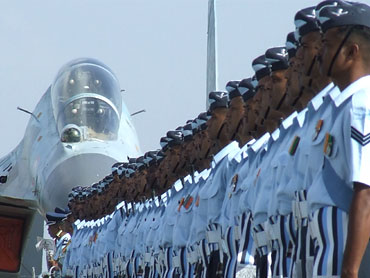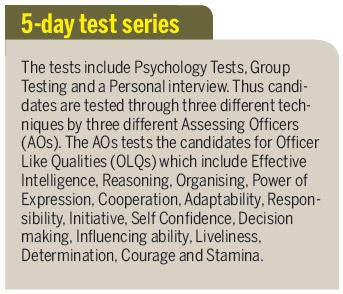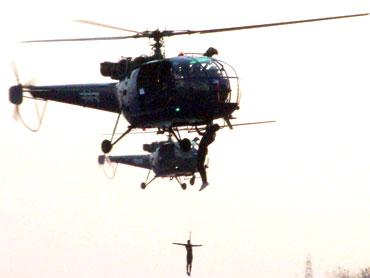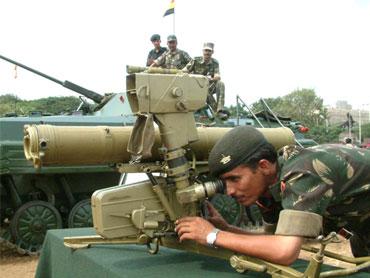The UPSC's Combined Defence Services Exam (CDSE) can be quite gruelling for the unprepared. To help candidates hoping to make a career in the armed forces, here's a ready reckoner of all you should know about the exam and the interview.
The armed forces are always looking for enthusiastic, committed young men and women who can lead and manage as officers.
Candidates shortlisted after the initial selection, go through a rigorous training regimen at one of the Air Force/ Army/ Navy training establishments. Thereafter, they are commissioned as officers and posted at any of the Air Force/ Army/ Navy stations.
As a graduate, you can apply during your final year for the UPSC (CDSE), both for permanent and short service commission. Here are some guidelines for those taking the CDSE exam in September 2010. The exam has three papers for Permanent Commission and two for candidates applying for Short Service Commission at the Officers Training Academy, Chennai (OTA). The OTA candidates do not attempt the Mathematics paper.
The written test
- The exam starts at 9 am and winds up at 5 pm on the same day. Most college students lack the mental stamina to sit for a paper for 8 hours. So, build it up and be prepared for the long hours.
- A very large number of candidates tend to take the exam without even knowing the syllabus. Understand the syllabus before you begin your preparation. Log on to the UPSC website (www.upsc.gov.in/general/cds.htm), to view the syllabus.
- Identify the topics in each paper and work out your strength and weakness. It may be advisable to work harder on your strengths to increase your percentage with reasonable effort. The topics in which you are not too good at could be dealt with in a manner to secure sufficient marks. Going about it the other way round is not such a good idea.
- The syllabus for the general knowledge paper is very vast and generic. You must identify what exactly you need to work on. Analysing the past five years' papers will help. You do not want to focus on the unnecessary and bulky, that is, difficult to comprehend and remember. For example, in history one needs to drastically cut down effort on ancient and medieval history.
Col SK Chabbra is director, The Cavalier (training academy).
After clearing the written exam, candidates are called for an interview conducted by various Service Selection Boards (SSB). Ideally, you must start preparing for the SSB as soon as you make up your mind to the give the written exam. Do not wait for the results to be declared. It normally takes 90 days or more for UPSC to declare results.
To prepare for the interview:
- Read newspapers regularly, listen to the news and watch current affairs discussions on television. Candidates must build on and sharpen their communication skills. This can be done by practicing making small speeches on different subjects on one's own. For more comprehensive preparation, they can also join some good institute.
- At the SSB Centre, candidates are first put through a screening test. This consists of an intelligence and reasoning test, picture perception and description test and a group discussion. Those who pass the Screening Test are held back and put through five days of tests. A candidate is tested by making him/ her participate in various activities to gauge their behaviour, contribution and communication.
- Psychological tests include:
a. Thematic Apperception Test: Candidates are shown a picture for 30 seconds after which they have to write a story on it in 4 minutes. A series of 10-12 pictures are shown and the stories are evaluated by a professional psychologist.
b. Word Association Test: A word is shown on the screen and candidates get 15 seconds to write a sentence expressing their idea or thought related to the word. A series of 60 words are shown and candidates' response evaluated.
c. Situation Reaction Test: A set of 60 situations are given in written form. Candidates get 30 seconds to write their response to each situation.
d. Self-description: The candidate is required to write about himself/herself as viewed by self, parents, teachers/
employer and friends.



